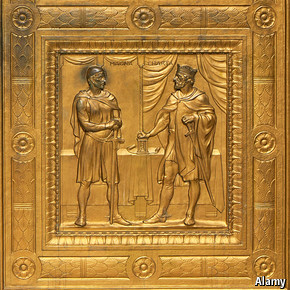Caught up in the intensity of our day to day, most of us pay paltry attention to the very bedrock the legal professoin rests on: I refer, of course, to the Rule of Law.
In the Anglo-Saxon legal canon, perhaps no document can lay claim to a more central position in establishing that indispensable tradition than the Magna Carta, which celebrates its 800th birthday this year. It was issued by King John or England at Runnymede on June 15, 1215, and was originally drafted by the Archbishop of Canterbury. While its historic import may be more symbolic than real, its symbolism cannot be denied; it breathed life into such foundational principles as no taxation without the general consent of the governed, habeas corpus, the right to trial by a jury of one’s peers, and perhaps most fundamental of all, the primacy of the governed over the whim of the ruler. It has been called “the greatest constitutional document of all times – the foundation of the freedom of the individual against the arbitrary authority of the despot.”
Underscoring that last point, the American colonies adopted its principles wholesale, quoting them back to the British with gusto, and incorporating key tenets into the US Constitution and Bill of Rights in 1789.
This might all be dismissable under the disparaging rubric of “academic interest,” but I want to bring everyone’s attention to an actual event designed around commemorating the historic importance of Magna Carta, namely the Global Law Summit taking place in Westminster, London, this February 23—25. Here are more details:
- A three-day program with over 2,000 attendees already registered, from law firms, in-house, government, and academia, and from around the world;
- A blue chip roster of speakers; and
- A chockful program extending over 3-1/2 days.
For some of us, this would be a bit more of a commute than for others, but I hope many of you can make it.



